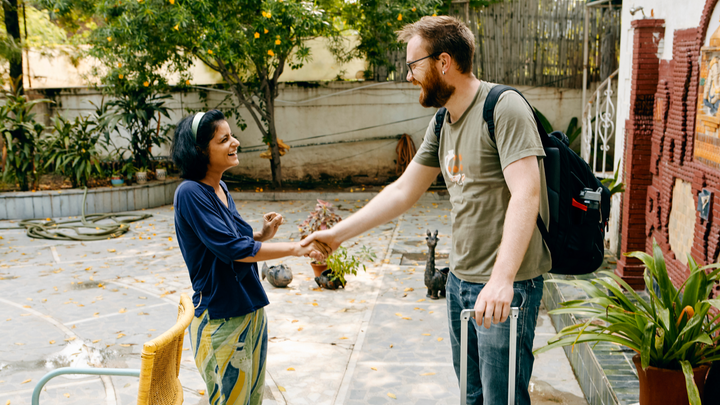Practicing inclusive hospitality and combating bias
Highlights
Bias exists largely at a subconscious level
Use objective criteria to evaluate potential guests
Take action by speaking out and using the same standards for everyone
Airbnb believes that travel can help foster connection and build a more open and inclusive world. Discrimination is a very real obstacle to that connection, which is why it’s so important to address it.
To help Hosts and guests understand discrimination and the biases that cause it, Airbnb worked with prominent social psychologists Dr. Robert W. Livingston of Harvard University and Dr. Peter Glick of Lawrence University. The guidelines and best practices in this article were inspired by their research and knowledge.
Bias vs. discrimination: What’s the difference?
“Bias” refers to feelings or assumptions about a person based on traits like race, religion, national origin, ethnicity, disability, sex, gender identity, sexual orientation, or age. “Discrimination” is when you behave differently toward someone based on their traits. Bias doesn’t always lead to discrimination, but it’s usually where discrimination starts.
What is implicit bias?
Bias exists largely at a subconscious level and is often called “implicit bias.” Implicit bias can influence how we treat people, causing us to discriminate—sometimes without even realizing it.
Gender-based and LGBTQ bias
Gender roles are deeply rooted in society and—whether we’re conscious of it or not—most of us use them to make determinations about how we think people should act. Gender stereotypes have significant implications for LGBTQ (lesbian, gay, bisexual, transgender, questioning, queer) people because their identities challenge societal norms.
No matter where you stand on gender and LGBTQ issues, it’s important to keep in mind that extending hospitality toward others does not require the adoption of their views or lifestyle.
The role of stereotypes
One of the ways bias displays itself is through stereotyping. A stereotype is a widely held but oversimplified or exaggerated image or idea of a particular type of person. Everyone uses stereotypes to a certain extent—sometimes consciously, sometimes unconsciously. Stereotyping groups of people can often lead to discriminatory behavior, from unintentional insults to extreme cases of injustice.
How you can take action
Discrimination goes against Airbnb’s core values and is prohibited on our platform. It's controllable and avoidable, even when it stems from implicit bias.
Here are some steps every Host can take to combat bias and help create a more inclusive community:
- Speak out. Add a message to your profile stating that your door is open to everyone. This not only signals to guests that they’re welcome, it can also inspire other Hosts to embrace the values of diversity and inclusion, too.
- Use the same standards for everyone. Create a set of objective criteria that you use to evaluate every potential guest, every time. For example, do the dates work for you? Are you able to accommodate the number of guests coming to stay? If your criteria are inconsistent from situation to situation, bias may creep into your decision-making.
- Use mindful decision-making. Before accepting or rejecting a guest, determine why you’ve made the decision and challenge yourself to give a rigorous explanation based on the criteria you’ve set. Ask yourself if you’d be comfortable having to tell the guest face-to-face the reason why they were declined.
- Unlearn stereotypes. One of the few proven ways to actually reverse implicit bias is to seek out experiences and info that go against stereotypes. Get out of your comfort zone, and meet people from diverse backgrounds or communities. Accept Airbnb guests from different walks of life. Positive contact and social interaction can reduce biases.
Information contained in this article may have changed since publication.
